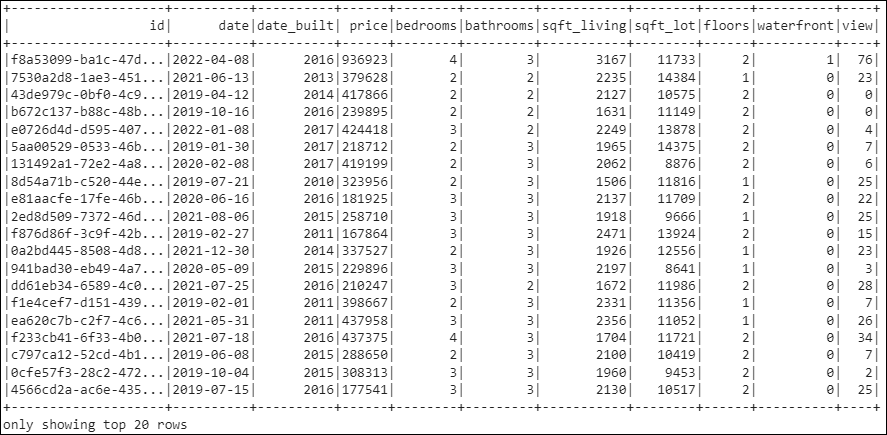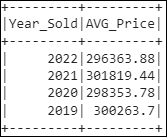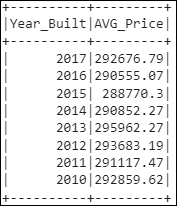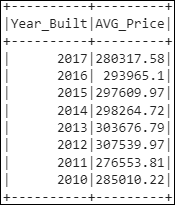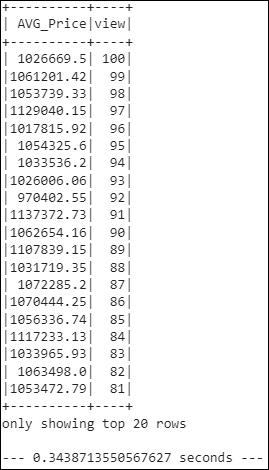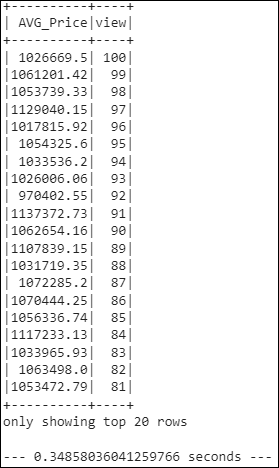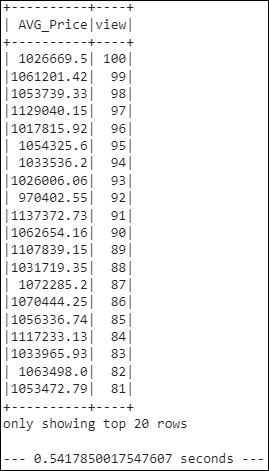In this challenge, you'll use your knowledge of SparkSQL to determine key metrics about home sales data. Then you'll use Spark to create temporary views, partition the data, cache and uncache a temporary table, and verify that the table has been uncached.
- Rename the
Home_Sales_starter_code.ipynbfile asHome_Sales.ipynb. - Import the necessary PySpark SQL functions for this assignment.
- Read the
home_sales_revised.csvdata in the starter code into a Spark DataFrame. - Create a temporary table called
home_sales. - Answer the following questions using SparkSQL:
- What is the average price for a four-bedroom house sold for each year? Round off your answer to two decimal places.
- What is the average price of a home for each year it was built that has three bedrooms and three bathrooms? Round off your answer to two decimal places.
- What is the average price of a home for each year that has three bedrooms, three bathrooms, two floors, and is greater than or equal to 2,000 square feet? Round off your answer to two decimal places.
- What is the "view" rating for homes costing more than or equal to $350,000? Determine the run time for this query, and round off your answer to two decimal places.
- Cache your temporary table
home_sales. - Check if your temporary table is cached.
- Using the cached data, run the query that filters out the view ratings with an average price of greater than or equal to $350,000. Determine the runtime and compare it to uncached runtime.
- Partition by the "date_built" field on the formatted parquet home sales data.
- Create a temporary table for the parquet data.
- Run the query that filters out the view ratings with an average price of greater than or equal to $350,000. Determine the runtime and compare it to uncached runtime.
- Uncache the
home_salestemporary table. - Verify that the
home_salestemporary table is uncached using PySpark. - Download your
Home_Sales.ipynbfile and upload it into your "Home_Sales" GitHub repository.
| Reference Name | Description |
|---|---|
| edX Boot Camps LLC | Dataset generation and starter files |
| PySpark | PySpark is the Python API for Apache Spark. It enables you to perform real-time, large-scale data processing in a distributed environment using Python. It also provides a PySpark shell for interactively analyzing your data. |
